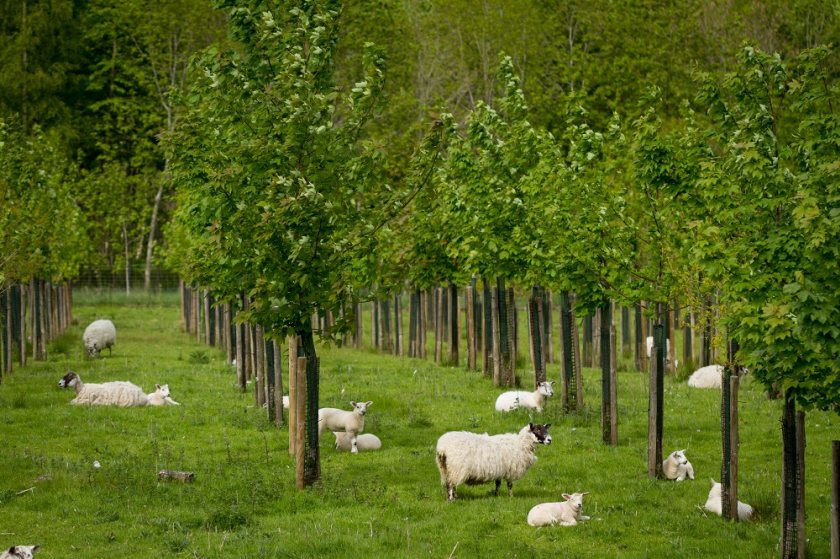
A farmer-led revolution in tree planting on farmland will propel Scotland as a world leader in sustainable and regenerative agriculture, the Soil Association has said.
The sustainable farming charity shared evidence to the Scottish parliament on how a transition to agroecology can help achieve the government’s net zero and nature recovery targets.
The reception brought agroecological farmers and crofters together with policy makers at Holyrood, where they demonstrated how they are putting nature friendly farming into practice, such as integrating trees with livestock and crops, and improving soil health and biodiversity while producing food.
The Soil Association also unveiled a new study at the event, which highlights how a farmer-led tree revolution can help meet Scotland's tree planting targets.
The Scottish government has set a target to increase annual tree planting to 18,000 hectares per year by 2024 to mitigate climate change and achieve net zero.
The report finds that given that 80% of the total land mass in Scotland is under agricultural production, farmers have a crucial role to play in meeting these targets.
Today one third of Scotland’s woodland is on farm, approximately 546,000 hectares, but the charity argues that agroforestry, or the integration of trees into arable land and livestock pastures, as well as increasing farm woodland, could see this grow by 342,000 hectares.
If the Scottish government maintained its 18,00ha per year tree planting target up to 2050, then this on-farm planting could account for 68% or more than two thirds of that projected total.
Furthermore, the environmental benefits of a shift to more integrated systems is likely to be greater than converting to woodland at a whole farm scale – without distorting the vital food and rural economies.
Soil Association head of policy, David McKay said that given the extent of the farmed landscape in Scotland, farmers will be key to achieving tree planting targets.
"This study provides recommendations for government and an economic model to demonstrate how agroforestry and integrated farm woodland offer a viable and cost-effective way to enhance tree planting without reducing agricultural production," he said.
“Strategically increasing agroforestry and farm woodland in Scotland has the potential to enhance the performance of the agricultural economy and develop new income streams for farmers.”
The report also finds that integrating more trees on farms has the potential to significantly increase incomes, support livestock, dairy and arable farming systems and enhance the performance of Scotland's food system.
The study argues that to achieve this will require the widespread adoption of these systems which will need public policy and investment to incentivise farmers to make these changes.
